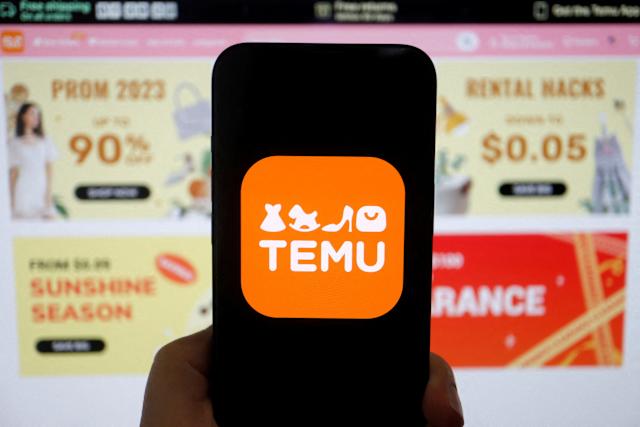Chinese e-commerce giant Temu is dramatically raising prices on U.S. orders, tacking on steep “import charges” in response to new tariffs introduced by former President Donald Trump. The move marks a significant shift in the platform’s pricing model and could challenge its once-dominant position in the U.S. market.
Trump’s Tariffs Drive Up Costs
The change comes on the heels of Trump’s newly imposed 145% tariff on Chinese imports and the elimination of the de minimis exemption, which previously allowed goods under $800 to enter the U.S. without incurring duties. As a result, Temu is now passing those import-related costs directly to American consumers.
These charges, which began appearing on April 25, often exceed the original price of the item. A CNBC analysis revealed:
- A summer dress listed at $18.47 now costs $44.68 after a $26.21 import fee.
- A child’s bathing suit priced at $12.44 rises to $31.12 with an $18.68 charge.
- A $16.93 handheld vacuum now totals $40.11 after a $21.68 fee.
Temu’s Explanation
Temu has updated its website with a general explanation:
“Items imported into the U.S. may be subject to import charges. These charges cover all customs-related processes and costs, including import fees paid to customs authorities on your behalf. The amount listed may not represent the actual amount paid to customs authorities.”
However, the company has yet to respond to requests for more detailed clarification.
Shein Takes a Different Route
While Temu breaks out tariffs as separate charges, competitor Shein has opted to bundle tariff costs into its product pricing. At checkout, Shein displays a banner that reads:
“Tariffs are included in the price you pay. You’ll never have to pay extra at delivery.”
This transparent, all-inclusive approach may help Shein retain customers as U.S. import policies evolve.
Consumer Backlash Erupts
Many Temu users have expressed frustration online, particularly on Reddit. One popular post titled “R.I.P. Temu, it was nice while it lasted” captured the mood, with one commenter joking:
“From shopping like a billionaire to shopping like a peasant in one day.”
Macinzi Morris, a longtime customer from Missouri, shared her own experience:
“My $12.25 order for succulent pots turned into $30 overnight. There’s no point in paying a 140% upcharge when I can just buy the same thing on Amazon for the same price—and get it faster.”
Local Warehouses Offer a Glimmer of Hope
Temu is now highlighting products shipped from U.S.-based warehouses, which appear to be exempt from import charges. The company is reportedly increasing efforts to stock more inventory locally to reduce dependency on Chinese shipments.
Currently, over 75% of items featured in Temu’s “Lightning Deals” are tagged as “local”, accompanied by a bright green banner reading:
“No import charges.”
A Shaky Future for Temu?
Temu took the U.S. by storm following its 2022 debut, luring shoppers with ultra-low prices and aggressive marketing that encouraged them to “Shop like a billionaire.” But as prices rise and delivery times remain inconsistent, Temu’s edge is clearly eroding.
Adding to its challenges:
- The company has slashed U.S. ad spending.
- Its App Store ranking has dropped from the top 10 to No. 73, according to Sensor Tower.
- Rival Shein has also slipped, now sitting at No. 54.
Without swift adaptation—such as scaling local fulfillment and improving pricing transparency—Temu may struggle to maintain its momentum in the face of changing trade policies and stiffening competition.

